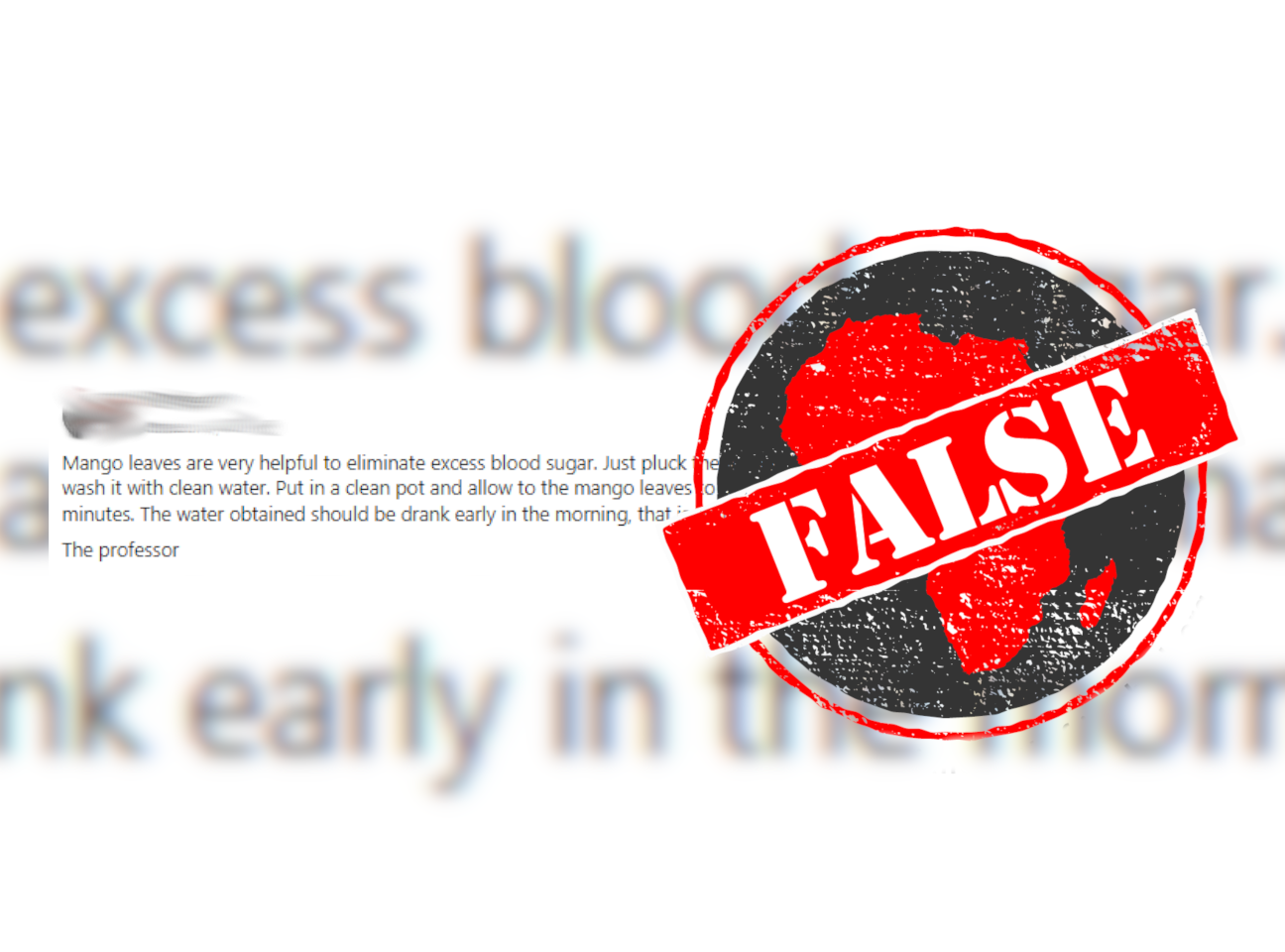“Mango leaves are very helpful to eliminate excess blood sugar,” begins a message posted on “The Professor”, a notorious quack Facebook page.
The Nigeria-based page often posts false and sometimes harmful home remedies. Africa Check has debunked many of them.
“Just pluck the mango leaves and wash it with clean water,” the new message reads. “Put in a clean pot and allow to the mango leaves to boil for about 10-15 minutes. The water obtained should be drank early in the morning, that is before breakfast.”
High blood sugar or hyperglycemia is a common condition in people with diabetes and can sometimes occur in those without diabetes. It can be dangerous if blood sugar levels become very high or stay high for an extended period.
Extremely high blood sugar levels can cause life-threatening complications such as diabetic ketoacidosis and a form of severe dehydration known as the hyperosmolar hyperglycaemic state.
Will mango leaves cure excess blood sugar? We checked.

See a doctor instead
“High blood sugar is a serious medical condition. Lifestyle changes and sometimes medication prescribed by a doctor is needed to keep it under control,” Olusegun Bankole, a medical doctor at the Alimosho General Hospital in Lagos, southwestern Nigeria, told Africa Check.
“It is not a condition that should be taken with levity or where one tries out cures that have not been put under scientific scrutiny.”
Bankole said such cures are common on social media and warned against using them.
“If there is any variation from the normal state of health, the best thing to do is see a doctor to ascertain what is wrong and get things under control,” he advised.
Republish our content for free
For publishers: what to do if your post is rated false
A fact-checker has rated your Facebook or Instagram post as “false”, “altered”, “partly false” or “missing context”. This could have serious consequences. What do you do?
Click on our guide for the steps you should follow.
Publishers guideAfrica Check teams up with Facebook
Africa Check is a partner in Meta's third-party fact-checking programme to help stop the spread of false information on social media.
The content we rate as “false” will be downgraded on Facebook and Instagram. This means fewer people will see it.
You can also help identify false information on Facebook. This guide explains how.


Add new comment